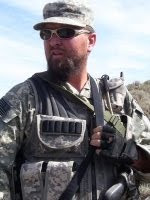.
..
...
What should a scene have in it?
What sets a scene for you, what can a writer do to really make you part of the scene?
Like the wind blowing through his hair, or the smell of decaying plants, or the flicker of lightning in the distance, or the rough texture of the stone floor beneath his feet…
What really makes it happen for you, what makes reading a book feel real to you?
Thx for any comment you might leave… please feel free to add your favorite scene one you try and emulate one that you try and live up to when you write.
.
Subscribe to:
Post Comments (Atom)





Jeff--I'm writing a mg hf novel about some children in WWII in England. I'm only on chapter four, but I know I've immersed myself when I finish a chapter and I'm exhausted. I'd love my writing to be compared to Lois Lenski one day (I'll probably be dead when that happens, but I'll be watching for it...)
ReplyDeleteFor me, a scene needs two things: dialogue and movement. Maybe it's my own playwriting background (since most of a script is dialogue), but I need to hear what characters are saying to each other (and not saying). And the dialogue needs to be doing something...moving the scene along, revealing character, shifting or building conflict...
ReplyDeleteWhat people are DOING matters, too. A cerebral interaction, where people talk back and forth for pages but don't seem to do anything but sit next to each other in chairs... blech. Even if they are putting up kitchen cabinets, smashing fingers, measuring, stepping up and down on ladders, etc., that's better than nothing. I hate feeling as if I'm wasting my time because nothing is actually being accomplished. Sometimes, though, the waiting is the point, and that's okay.
As to real, using all five senses (taste when possible, that is) is the key. Many writers use visual cues but nothing else, or they might throw in a sound here and there. I want to feel what's happening, so touch is crucial. It's also the most subconscious of the senses, so readers will fall into a piece through touch and smell without realizing what is happening... much more subtle.
Thanks for the questions... I need to get going for school, but I'm glad I stopped by after so long away.
I think Shakespeare hit high points and I agree with her.
ReplyDeleteThere's no set amount of description. Sometimes I describe things sumptuously; sometimes sketchily if I want the reader to do his own thinking.
But, what you need to have primarily, just as Shakespeare said, is progress. I also think it helps if you can make the dynamics clear. I tend toward ensemble casts and the dynamics between the individuals allows for progress even on scenes where nothing is overtly happening. The progress could be decisions, revelations, even a power struggle. Sometimes, it's just getting to know all the characters better. But something that either moves the story forward or fleshes it out.
Great advice all... thx
ReplyDeleteAs usual, I am not sure about writing. But when I make a movie, which is a collection of scenes cut together, I make sure each scene advances the story in some way. Otherwise there is no purpose in shooting it. So you have to know what the story is you are trying to tell, of course. I suppose writing is not so expensive, so you can be more liberal with scenes that are simply interesting - that's why when you adapt a book to a movie, you don't use every scene in the book, but rather you essentialize the story. But I still don't think I would write a scene just to practice my skills of description. Ask how the scene you are writing helps tell the overall story and adds information about the overall story. Otherwise you are simply entertaining your reader on a side trip instead of telling your story. I guess this is really the same thing the experts on writing have already said, though.
ReplyDelete